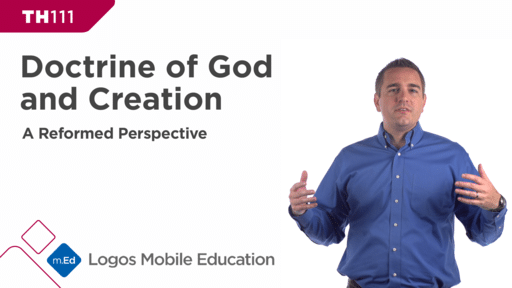TH111 Doctrine of God and Creation: A Reformed Perspective
Sign in to rateWhat is the relationship between Holy Scripture and Christian tradition, and how do you use both to live in the world as Christ’s disciple? These are some of the questions Dr. Michael Allen explores in TH111. Using John Calvin’s image of theology as spectacles, Dr. Allen shows how Scripture and theological tradition work together to shape how we see, interact with, and serve the world in our own unique time and place.
After defining and explaining different theological methods, Dr. Allen provides an in-depth look at the character of God—in particular God’s triunity—in order to explain the relationship between God and humanity. Dr. Allen shows how our creaturely origins inform our rightful dependency on God and God’s unique covenant with humanity. He also explains how being created in God’s image affects our understanding of relationships, morality, and missions. This course concludes with a reflection on sin’s impact on God’s covenant with humanity and our vocation as divine image bearers.
